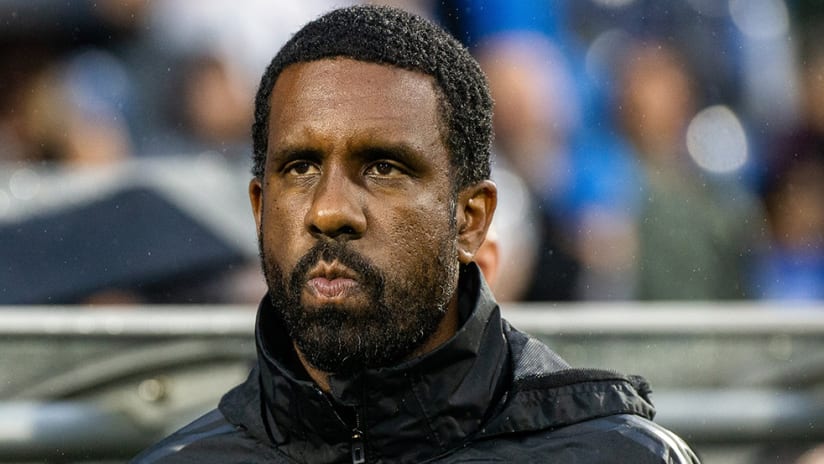It was risky when CF Montréal hired Thierry Henry as their head coach in November 2019, given his short, rocky and ill-fated tenure at Ligue 1's AS Monaco a few months prior. But the French legend’s reputation, upside and razor-sharp soccer brain made it a worthwhile gamble for a club hunting both leadership and identity.
Then after Henry stepped down last month, CFM were faced with another big choice, and with far less time to make it than before. Had Henry and his staff laid a foundation worth saving and building upon, or did the need for personality and charisma necessitate the hiring of another big name?
By choosing Henry’s first assistant Wilfried Nancy, Montréal have picked the first option – signaling a combination of optimism and pragmatism about the state of the club’s rebuild. It’s not the sexiest choice, for lack of a better term, but anyone underwhelmed by the move should consider the painstaking process that the Quebecois side labored through over the past 14 months.
“Last year, we did a good job. Because it was not easy, and I think with Thierry and the staff, we made some good games with our style of play. And I would like to continue that,” Nancy told reporters on Monday, a subtle nod to the myriad challenges Montréal navigated to reach the Audi MLS Cup Playoffs for the first time in four years.
“If we have a clear vision, and we want to put all the stuff in place, I'm pretty sure that we can do something amazing.”
It’s a bit counterintuitive, but Montréal have essentially decided that making the most of the incomplete legacy Henry left behind is to place the project in the hands of a very un-Titi-like figure. Though he's French by birth, Nancy is “a child of the club,” in the words of sporting director Olivier Renard, a deeply respected figure around the locker room who’s coached at multiple levels since arriving in 2011 to help launch Montréal's academy.
Though he carries a résumé as a professional player, Nancy has earned credibility with his work on the training ground, first leading youth teams and later as Henry’s right-hand man. He knows the roster. He knows the city and its fiercely unique culture. And he knows who’s coming down the pipeline, no small matter considering that Montréal have placed youth development at the heart of their evolving identity.
“The fact that we have a young team, this is my lifestyle. I like to take initiative, I like to take ownership about a lot of stuff. So we're going to be a good team, proactive, dynamic … What I like is that my players are going to organize the moment, to defend or attack,” said Nancy, who like many around CFM, switches seamlessly between two main tongues.
“Youngsters give us a little more flexibility,” he later added in French, “and what interests me is developing the club’s young players.”
The Montréal sides that first grabbed the MLS spotlight were veteran outfits led by Ignacio Piatti and Didier Drogba, generally cagey, comfortable sitting deep and breaking out on the counter, flashing catenaccio tendencies to match owner Joey Saputo’s ties to Italy, where he also owns Serie A club Bologna. It was devastating when it worked, though consistency was elusive.
Times have changed, and Montréal are clearly something different today, even if they’re still en route to what and who they wish to be. That type of reinvention is difficult, painstaking work, and while no one gets passionate about moral victories, their respectable 2020 counts as such. This is exactly what Renard was brought in to oversee.
With COVID-19-imposed border restrictions forcing another extended residency away from home this spring, this time in Florida, the task probably won’t get any easier. But that’s just the sort of undertaking that Nancy has spent the past decade preparing for.
“Me, I am the kind of person that, I like when everything is clear and simple for the player, and want guys also to express themselves within the structure,” said the man known simply as “Wil” to most of his colleagues. “At the end of the day, I think you need the process ... now with Olivier, the vision is clear.”













